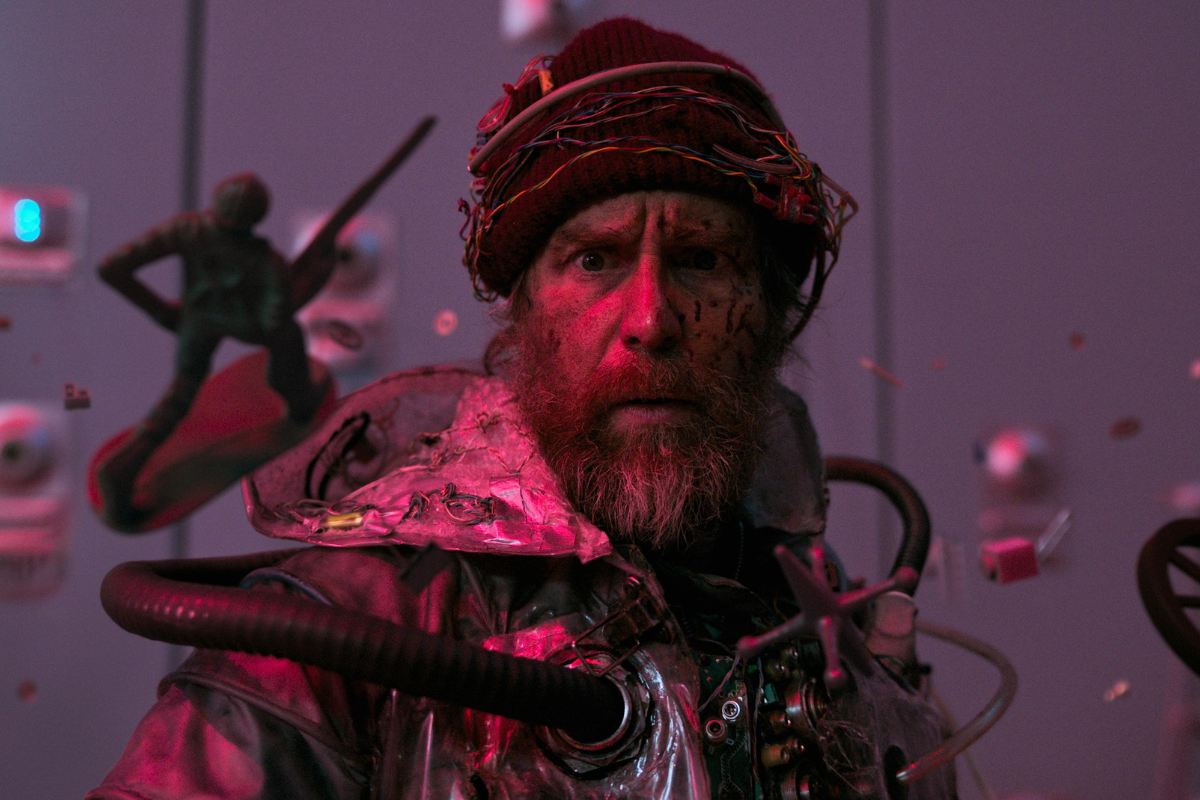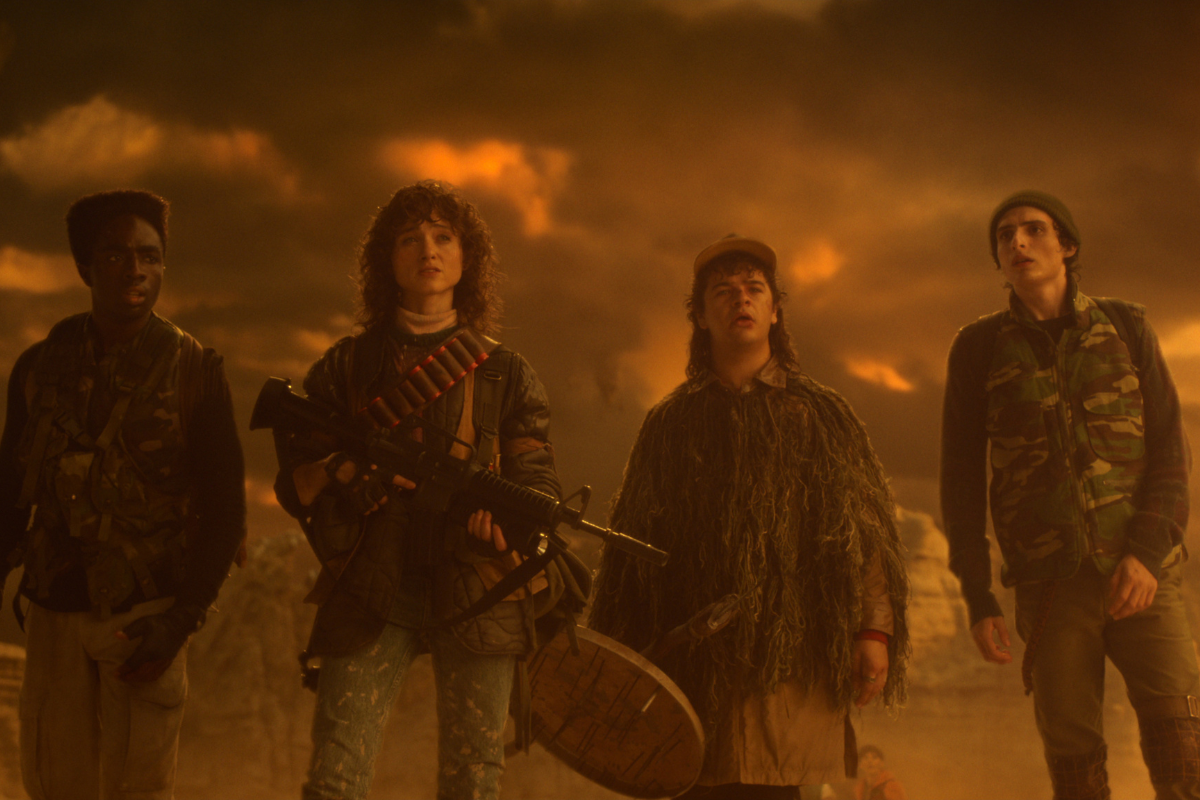‘A House of Dynamite’ – Review
Bigelow lights the fuse but never sets off the explosion.
Kathryn Bigelow’s A House of Dynamite opens with the kind of precision, tension, and control that instantly reminds you why she remains one of the few filmmakers capable of turning political dread into cinematic electricity. The first act, in particular, is nothing short of phenomenal. Within minutes, we are thrown into a world teetering on the edge of destruction, where every decision could mean the difference between peace and annihilation. The sense of urgency is palpable, the editing tight, and the stakes impossibly high. For the first forty minutes, I genuinely thought I was watching one of the most gripping political thrillers of the decade.
And then, somewhere along the way, the fuse burns out.
The film begins with a chilling premise: an unidentified missile is launched toward the United States, and in the scramble to determine who is responsible and how to respond, the machinery of power starts to creak under pressure. It is a setup that feels both familiar and terrifyingly plausible. You can sense Bigelow’s intent to explore the bureaucratic chaos that would unfold in the event of a nuclear threat, and she does this with sharp, documentary-like precision. Rebecca Ferguson delivers a standout performance as one of the key officials at the heart of the crisis, and her scenes in the first act pulse with authenticity. Her character grounds the film emotionally, even as the situation spirals into madness.
But after that riveting start, A House of Dynamite starts replaying its own scenes, literally and thematically. Bigelow employs a multi-perspective structure that revisits the same timeframe from different points of view—an idea that could have been fascinating if it offered new insight each time. Instead, the repetition drains the momentum. What begins as a tense countdown to potential nuclear war becomes an exercise in déjà vu. The second and third acts rehash much of what we’ve already seen, adding little in terms of new information or emotional weight.
The structure might be conceptually bold, but in execution it feels like a creative misfire. Each “new” perspective promises revelation but instead recycles earlier tension. The pacing, once sharp and breathless, turns sluggish. By the time we loop through the crisis a third time, the tension has evaporated entirely. The stakes, which once felt monumental, become oddly abstract, and the film’s climactic moments land with a dull thud.
What’s frustrating is that you can clearly see the intelligence behind Bigelow’s choices. The idea of telling this story in real time, then rewinding to explore alternate viewpoints, could have been a fascinating study of perception and responsibility. After all, in a real-world crisis, no single person has the full picture. But the film never transforms that structural experiment into something meaningful. Instead of deepening the story, it dilutes it. The result is a two-hour film that could easily have been a taut, devastating 40-minute short.
Technically, A House of Dynamite has its moments. The cinematography captures the sterile claustrophobia of war rooms and command centers with unnerving accuracy. Volker Bertelmann’s score pulses like a ticking clock, ratcheting up the anxiety, though it occasionally feels distractingly derivative of his earlier work in Conclave. The sound design, however, is impeccable, every phone ring, every clipped radio transmission, every quiet exhale adds to the suffocating sense of dread.
Performance-wise, Ferguson anchors the film with quiet authority, and she’s joined by a solid ensemble that includes Idris Elba, Tracy Letts, and Greta Lee. Each actor commits fully, though their characters often feel more symbolic than human. The dialogue sometimes tips into heavy-handed exposition, as if the film doesn’t entirely trust the audience to keep up. The political messaging, too, feels strangely outdated, a “America under attack” narrative that lacks nuance or contemporary awareness. For a film about global crisis, its worldview feels surprisingly small.
Thematically, Bigelow seems to be reaching for something profound about power, fear, and human fallibility in the face of catastrophe. At its best, the film captures the terrifying bureaucracy of decision-making in moments when every second counts. The procedural details are compelling, even fascinating, but they never coalesce into a larger emotional or philosophical statement. Unlike The Hurt Locker or Zero Dark Thirty, where Bigelow married precision with psychological insight, A House of Dynamite feels detached. It observes its characters from a distance, documenting rather than dramatizing.
And then there’s the ending, or rather, the lack of one. Without giving anything away, it’s safe to say the film builds toward a climax that never arrives. The tension that had been carefully constructed in the first act simply dissolves into ambiguity. Some viewers might defend this as deliberate, an artistic choice to reflect the uncertainty of real-world politics. I see the intent, but for me, it felt more like the film ran out of courage to confront its own questions. It’s an ending that leaves you stranded, staring at the screen, waiting for an impact that never comes.
Still, it’s hard not to admire Bigelow’s ambition. She’s one of the few directors working today who tackles subjects of this scale and seriousness with such meticulous care. Even when her films falter, they do so with purpose. A House of Dynamite is flawed, repetitive, and ultimately unsatisfying, but it’s also crafted with intelligence and precision. It mirrors our collective anxiety about a world perpetually on the brink, where information overload and indecision can be just as destructive as any missile.
If A House of Dynamite had maintained the relentless focus of its first act, if it had trusted its initial momentum instead of circling back repeatedly, it could have been something extraordinary. Instead, it becomes a fascinating near-miss, a thriller that starts as dynamite but fizzles before the explosion. Still, for all its flaws, it’s a film that lingers, if only because it feels uncomfortably close to our reality.
It may not be the triumphant return I hoped for from Bigelow, but it’s a reminder that even when she stumbles, she still knows how to make us lean forward, breath held, waiting for the spark.
A House of Dynamite is now streaming on Netflix.







